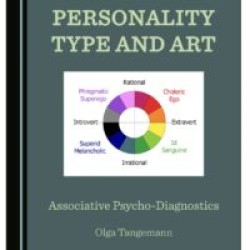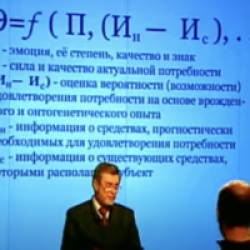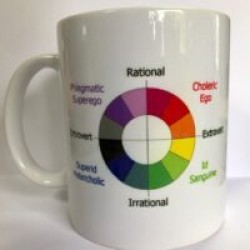Max Otto von Stirlitz (Russian: Шти́рлиц, IPA: [ˈʂtʲirlʲɪt͡s]) is the lead character in a popular Russian book series written in the 1960s by novelist Yulian Semyonov and of the television adaptation Seventeen Moments of Spring, starring Vyacheslav Tikhonov, as well as in feature films, produced in the Soviet era, and in a number of sequels and prequels. Other actors portrayed Stirlitz in several other films. Read more.
I.Weisband, Working Materials, 1986. Translated by Dmitri Lytov, edited by Lev Kamensky, 2002
1. Rapid, clear, sober mind. He knows how to act in an intelligent and logical way. His bearing is sporty, facial traits are sharp and coarse, as if carved from granite, and by this all – covert nervousness, high internal emotionality. His motto sounds: force, integrity and a sense of duty. He is a born scout – he collects information using all available channels until he achieves an absolutely clear picture that provides him with indemnity to act for sure.
2. “All I do is done well”. One more quotation: “There is a gift which is always characteristic of great baseball players and teams. This is onslaught. This is the capability to run more rapidly then one is required to, to move more quickly than one is required to, to be more impertinent than one is required to” (Ph.Brooks). Initiative is habitual to him; he is decisive, likes to be the center of attention. He defends his ideas with guts and fervor. In front of his superiors he is not shy, even becomes aggressive. He knows that business only then goes perfectly if the necessary tempo is set from the very beginning. He does not tolerate procrastination, is an ardent struggler for quality and thoroughness in all work. A good army officer. Like Thomas Edison, a representative of this type is capable of working 19.5 hours a day.
3. “Rage is a mighty god of the strong”. He tends to take other people out of the condition of complacency. He does not speak much about what is good, considers it self-evident. With his grumbling emotions he strives to extinguish emotions of others. He believes that redundant emotions tire people, and this is absolutely true if applied to his dual (The Humanist). During a conversation he pressures his interlocutor, even tries to intimidate him, but if people do not fear him, he becomes courteous and polite. Fury is his line of defense in a situation of emergency in which he feels otherwise helpless. The aim of his fury is to mobilize his partner, and when this is achieved, he calms down.
4. Belief in playing fair. He considers obedience to rules to be a strength trait. He does not tolerate slyness and deviousness, hates cheaters and dodgy folks. “Political maneuvers may produce a quick effect, but a truly lasting and tangible results can be reached only through hard work” (Kim Philby). He likes order. Having bought a new thing, he will for sure read the manual and only then will switch it on. The famous traveler Roald Amundsen managed to avoid extreme situations all his life. “Victory awaits those who keep things orderly”, he used to say, “and this is what we call good fortune”. A believer in honest labour. “If everything seems to be easy, this is an infallible evidence that the worker is far from being skilled and that the work is above his competence” (Leonardo Da Vinci).
5. “A reserved force characteristic for military officers”. He looks well built, has a straight bearing even if he has never served in the army. He dresses well and elegantly, but does not like to dress to demonstratively. He wears his clothes very long, and it always looks permanently fresh, as if unaffected by time. He never buys uncomfortable shoes, and makes others dress very neatly. An aesthete.











